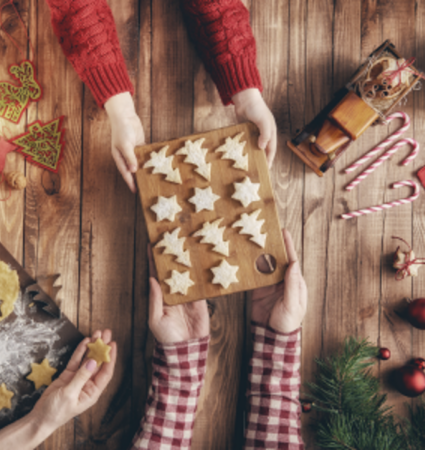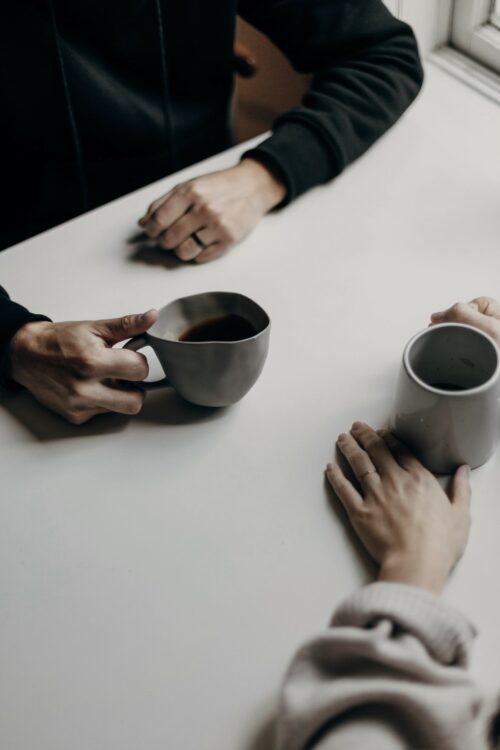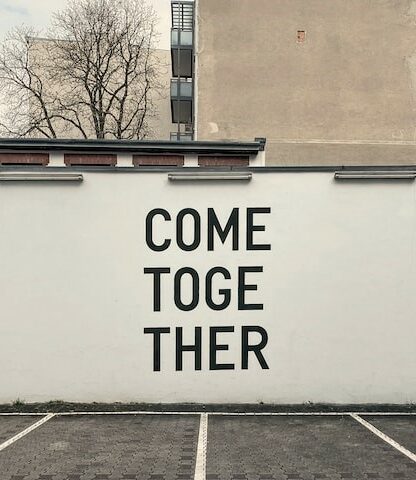Happy Holidays: You are seen. You are safe. You belong.
Happy Holidays from The Sparks Group! We hope you are enjoying the season in whatever ways are most meaningful for you. Also: this can be a tough time of year for many reasons. We are delighted to share some thoughts from Dr. Laura Yee Breeding, one of our many talented coaches, on how the holidays can cause feelings of belonging and isolation to arise in us, and what we might do about the latter. Whatever your beliefs and practices, we hope you find peace and joy during a hectic time of year.
-Jessica, Anna, Emily, and the whole Sparks Group team
While I’m still gobbling my way through post-Thanksgiving soup, turkey sandwiches, and meals made from every potpourri combination of leftover side dish, outside, it seems everything’s moved on to Christmas and New Year’s the morning after my Thanksgiving meal. Lamp posts attempt to pass as oversized candy canes, and artificial garlands contrast against bright red bows around town. Even though it’s not yet December, Christmas is here.
As an eternal child posing as a responsible adult, it comes as little surprise to those in my orbit that I easily succumb to this artful wizardry; this over-saturation of merry-spiritedness serves as a welcome reminder for me of many sources of joy: family, connection, self-care, peace, community, hope, and so forth.
For me – someone who grew up surrounded by a stable, consistent family unit, secure housing, food, and many more of the tangible and intangible unearned privileges afforded to the American middle class, it’s a joy-filled time of year. I eagerly anticipate the warmth and wholeness I’ll feel while surrounded by loved ones and engaging in one of my most favorite pastimes – eating.
During this season of capitalist spectacle, it’s easy to forget that the forced merriment filling me with such joy lands on each person differently. Of course, I know this intellectually. Globally, non-Christian religions pervade, and nationally, almost four out of every ten people don’t identify as Christian. Furthermore, 32 countries are suffering in deadly conflict. The fact that I’m not consistently reminded of these realities due to my physical and relational proximity is yet another privilege. Unless I make intentional efforts to do so, these realities won’t organically surface in my daily life.
That’s not to say that people close by may also experience this season in less than joyful ways. For those experiencing loss, pervasive holiday reminders about family and connection can lead to further isolation. Hosting can cause stress and anxiety, as well as managing expectations, guest dynamics, and pressures from widespread messages about how to be a “good” host. Still, others want to provide for their families but don’t have resources to do so.
As a leadership coach, clients entrust me with stories that reveal their most authentic selves, often to themselves as much as to me. Sometimes these stories are painful but nonetheless influence who they are and how they walk through their days, other times, in recalling a seemingly insignificant moment, we’ll discover hidden saboteurs whose unveiling marks the genesis of new-found empowerment and liberation. These stories are infinite and unpredictable. and with each telling, I remain overwhelmed by gratitude for the privilege to hear them. Each person’s lived experience, family history, personal development, professional journey, and future aspirations are remarkably unique and deeply complex. Mining these stories reveals and re-affirms the essence of who they are, their sense of self, and their value – all of which we cannot see.
Even with the infinite range of individuality within each, taken together, these stories contain a unifying theme: we’re all grappling to manifest our best life – whatever that is. It’s often hard to envision clearly, but in the end, I think we’ll feel rather than know when we’ve finally accomplished it. Science tells us how.
No matter what you believe about how we came to be, biology shows us that our brains are wired to feel comforted by the familiar and trigger alarm in response to that which is not. With the familiar, safety and trust are more easily established, allowing us to access creativity, problem-solving, and unique skills specific to each of us. Together in this familiar space, our collective capacity presents an unparalleled collection of complementary skills that advance our species. In this ultimate safe haven – where we are surrounded by the familiar and those familiar to us fully embrace us for simply being – we are rewarded by a feeling we know as belonging. Our sense of belonging allows us to thrive. On the other hand, our brains developed an equally sophisticated system to avoid potential threats to our safety, and at its most extreme, automatically triggers our fight, flight or freeze responses (“amygdala hijack”) when perceiving a threat from the unfamiliar.
These affinities, and our resulting implicit biases, have created negative associations with difference, allowing us to dismiss the “other” – those different from ourselves. Even in non-life-threatening contexts, we balk at what’s different and even justify mistreatment based on the threat of this unfamiliarity. Add to the mix a social context that continuously, expertly influences our thinking, reinforcing, and confirming biases about others whom we’ve never met, and we’ve distanced ourselves from the most valuable survival assets: connection and belonging.
We’ve created and bought into a narrative that tells us our differences divide us. Rather than reaching out to relish in each other’s dignified uniqueness, making the unfamiliar familiar, and exploring the potential to create a thriving global community, we’ve instead retreated to our own tribes, held hostage by our brain chemistry. Surrounded by the comfort of our tribe, we repeatedly seek alternative solutions to create the life we desire but are limited by the collective capacity of our like-minded tribal members.
In the meantime, while I flit about in my Christmas belongingness, I’ve re-committed to counteracting the likely division and isolation it may cause for those whose experiences differ from my own.
So, as I willingly venture forth into my privileged, gas-guzzling search for the exact LEGO set my child insists he canNOT live without, I’ll invest more energy into connecting with the humans I encounter along the way. Instead of the typical, “How are you?” I’ll continue to ask my new favorite question, “What’s bringing you joy these days?” inviting them to share a story with me and in doing so, begin to demystify the unfamiliar.
We’re all holding stories that shape our invisible identities, and even though I’ll never have time to hear all of them, I can make an intentional effort to create space for others to share one with me. They may accept my invitation and recall a moment when they felt they belonged, and in doing so, fortify their sense of self, foster a human connection, and ideally, send the chemicals in their brain a message we all need to hear: You are seen. You are safe. You belong.
Dr. Laura




